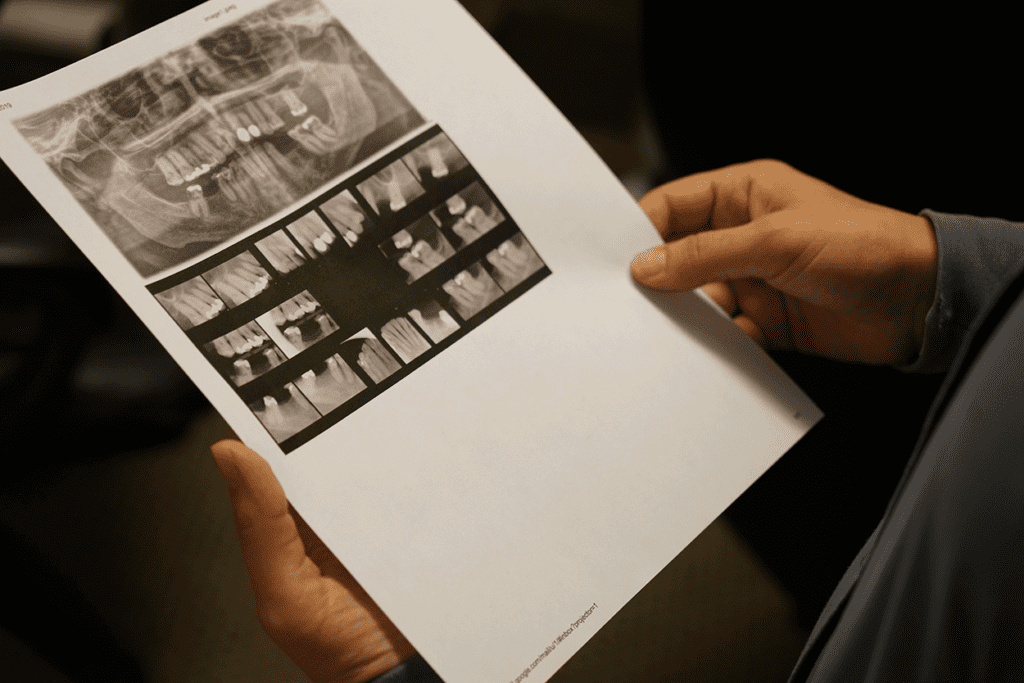Notice that your jaw feels sore when you wake up in the morning? You might be grinding your teeth at night. While this may not seem like a big deal, bruxism (teeth grinding) can have serious side effects ranging from lost teeth to extreme jaw pain. This condition is more common than you might think. Roughly eight percent of the general population struggles with sleep bruxism, and some people also struggle with teeth grinding during the day as well. Luckily, teeth grinding is manageable with the help of a dentist and some lifestyle changes. At Mill Dam Dental Care, we use custom mouth guards and other treatments to help our patients have a healthy, pain-free mouth. Here’s more information on the cause and effect of teeth grinding and what you can do to prevent it.
The Causes of Teeth Grinding
There are a variety of different factors that can cause you to grind your teeth. Bruxism is particularly common in children and teens, most of whom grow out of it as they reach adulthood. Crooked or missing teeth or a misaligned bite can all increase your likelihood of developing bruxism. However, these issues are typically corrected as patients grow into adulthood, which reduces instances of teeth grinding.
One of the most common causes of teeth grinding is stress and anxiety. When we feel physically and mentally tense, we’re more likely to clench our jaws at night. Other comorbid sleep conditions, such as sleep apnea, can also make you more likely to grind your teeth. Teeth grinding is a common side effect of both prescription drugs and substance abuse. For example, bruxism is a side effect of many SSRIs, but alcohol use, smoking, and use of stimulant drugs like ecstasy and cocaine can all result in teeth grinding.
Additionally, bruxism tends to run in families. This means if you have a relative that grinds their teeth or did so when they were a child, you will be more likely to develop this condition as well.
What Are the Symptoms of Teeth Grinding?
Since most teeth grinding happens at night, many people don’t realize that it is happening until the symptoms become more extreme. The first symptom for many people is headaches and jaw pain in the morning. Teeth grinding is also very noisy, so if you sleep with a partner, they might notice the problem before you do.
Over time, the tension in your jaw will get more intense if you don’t seek treatment. The pain can make it difficult to eat or even open your mouth in extreme cases, and it may also cause TMJ. Many people also feel pain in their head, ears, and even in the teeth themselves.
Additionally, grinding your teeth will eventually wear down the enamel itself. Enamel protects your teeth, so as it wears down, you’ll be more susceptible to temperature sensitivity, discoloration, cavities, and tooth decay. Over time, the teeth will flatten down and lose their texture, making it difficult to chew. Frequent grinding may even cause your teeth to chip, loosen, or even fall out.
On top of that, you may damage the skin inside your mouth while grinding your teeth at night. You may unintentionally be biting the inside of your mouth, which can cause cuts and bleeding.
Treatment For Teeth Grinding
The most effective way to treat this habit is with a custom mouth guard. The mouth guard is a barrier between your top and bottom teeth, which prevents you from grinding and clenching. At Mill Dam Dental Care, we use advanced 3D printers to create mouth guards for our patients in-office. We scan your mouth to create a detailed mold that will fit comfortably and protect your teeth. Using an in-house 3D printer also means that we can create your mold very quickly.
You’ll also need to treat the underlying cause in order to see results. If your teeth grinding is caused by misaligned or damaged teeth, it’s important to fix those problems with crowns or orthodontic treatment. If it is caused by stress or anxiety, consider seeking treatment for those issues as well, whether that’s via anti-anxiety drugs, therapy, or a combination of both. If it is related to substance abuse, consider seeking treatment to cut back or eliminate harmful substances from your life.
Some patients with bruxism have found success using muscle relaxants or even Botox in extreme cases and where other therapies have not been effective. However, this is usually not necessary as a well-made mouth guard is very effective at preventing teeth grinding in the long run. Ultimately, you’ll need to work with your dentist and doctors to find a solution that’s most effective for your needs.

Lifestyle Changes to Minimize Teeth Grinding
In addition to professional treatment, there are also a variety of helpful lifestyle changes that can reduce teeth grinding, whether that’s at night or during the day. The first step is to avoid alcohol, caffeine, and any other stimulants, especially right before bedtime, as these things can contribute to teeth grinding. Also drink plenty of water throughout the day, so that you are well-hydrated.
Additionally, try to avoid chewing gum or ice throughout the day. Unnecessary strenuous chewing will make the muscle tension in your jaw worse and exacerbate the pain. This can be a difficult habit to break, so don’t be afraid to seek extra support if necessary.
If your teeth grinding is stress-related, create a pre-bedtime routine that will help you relax. Many bruxism patients find that gently massaging their jaw muscles is very helpful for relaxation. Take the time to do other things that will help you unwind from the day, whether that’s reading a book, listening to music, spending time with loved ones, and so on. This can help prevent that tension from keeping you up at night.
Grinding your teeth and clenching your jaw often result in disastrous side effects, so don’t wait to seek treatment if this is something you or your child is struggling with. Mill Dam’s caring team of dentists and hygienists are here to help you manage this frustrating condition. Contact us today to schedule an appointment or learn more about our dental services.

